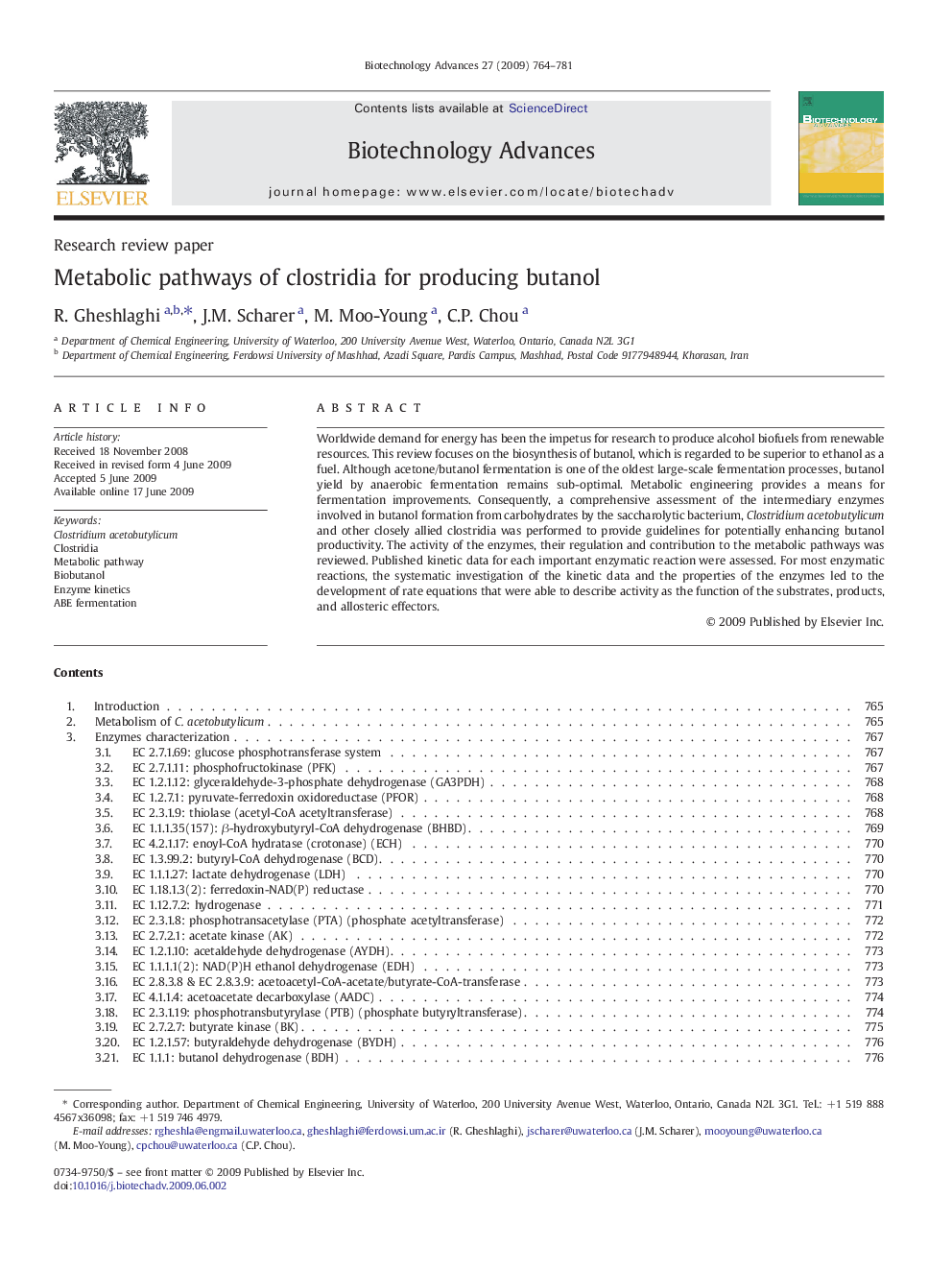| Article ID | Journal | Published Year | Pages | File Type |
|---|---|---|---|---|
| 14651 | Biotechnology Advances | 2009 | 18 Pages |
Worldwide demand for energy has been the impetus for research to produce alcohol biofuels from renewable resources. This review focuses on the biosynthesis of butanol, which is regarded to be superior to ethanol as a fuel. Although acetone/butanol fermentation is one of the oldest large-scale fermentation processes, butanol yield by anaerobic fermentation remains sub-optimal. Metabolic engineering provides a means for fermentation improvements. Consequently, a comprehensive assessment of the intermediary enzymes involved in butanol formation from carbohydrates by the saccharolytic bacterium, Clostridium acetobutylicum and other closely allied clostridia was performed to provide guidelines for potentially enhancing butanol productivity. The activity of the enzymes, their regulation and contribution to the metabolic pathways was reviewed. Published kinetic data for each important enzymatic reaction were assessed. For most enzymatic reactions, the systematic investigation of the kinetic data and the properties of the enzymes led to the development of rate equations that were able to describe activity as the function of the substrates, products, and allosteric effectors.
